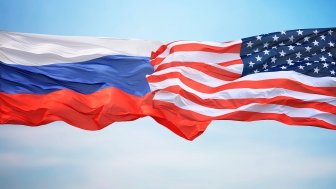Rajan Menon
Former Research Grant
Professional Affiliation
Anne and Bernard Spitzer Chair, International Relations,Powell School, City College of New York/City University of New York; Senior Research Scholar, Saltzman Institute of War and Peace Studies, Columbia University
Expert Bio
Rajan Menon holds the Anne and Bernard Spitzer Chair in International Relations at the Powell School, City College of New York/City University of New York, and is a Senior Research Scholar at the Saltzman Institute of War and Peace Studies, Columbia University.
He has been a Fellow at the Carnegie Council on Ethics in International Affairs and the New America Foundation, Academic Fellow at the Carnegie Corporation, at Research Scholar the Kennan Institute, Woodrow Wilson International Center for Scholars (the Wilson Center), and Senior Fellow at the Council on Foreign Relations. His two most recent books are Conflict in Ukraine: The Unwinding of the Post-Cold War Order, coauthored with Eugene Rumer (MIT Press, 2015), and The Conceit of Humanitarian Intervention (Oxford University Press, 2016).
In addition academic journals, he has written for Foreign Affairs, the Boston Review, Foreign Policy, National Interest, the New York Times Book Review, Los Angeles Times, Newsweek, Financial Times, Christian Science Monitor, Newsday, Chicago Tribune, Boston Globe, Boston Review, US News & World Report, CNN, the Nation, and Washingtonpost.com and appeared as a commentator on ABC, CNN, MSNBC, the BBC, NPR, France 24 Television, the Canadian Broadcasting Corporation, and Radio Australia.
In 1989-90, while an International Affairs Fellow of the Council on Foreign Relations, he served as Special Assistant for National Security (focusing on arms control) on the staff of Representative Stephen J. Solarz (D-NY), chair of the House Foreign Relations Committee’s Asia-Pacific Subcommittee.
Wilson Center Project
Military and Security Aspects of Soviet Policy towards Northeast Asia
Project Summary
Examines military and security aspects of Soviet policy in Northeast Asia. Focuses on the evolution, shifts and implications for policy in the Soviet perception of the ’correlation of forces;’ the patterns in deployment, missions, strengths and weeknesses of Soviet forces in the region and the implications for Northeast Asian equilibrium and peace; Soviet attitudes to and proposals directed at regional arms control and crisis management.
Insight & Analysis by Rajan Menon
- Past event
- Coronavirus
WEBCAST: U.S.-Russian Relations in the Time of COVID-19


